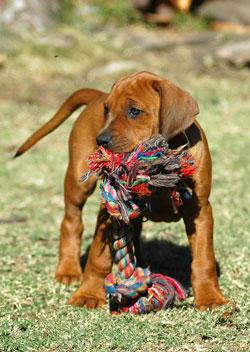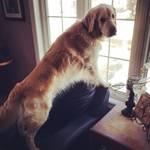
Choosing a Dog Breed
Spring is here, and that means puppy season! Choosing to add a dog to your family is a very important decision. Choosing what specific breed is equally important to ensure a lasting bond between your family and your dog. There are many important things to consider when choosing a dog breed to make sure that it is suited to your family.
Temperament
Temperament (personality) is one of the most important things to consider. All individual dogs will have their own personalities, but each breed definitely has certain characteristics typical to it. While all dogs can be socialized to do well with children and people, some breeds have a temperament to be very friendly to all people, while other breeds are more protective of their family and less friendly to people they do not know. Some breeds tend to be very food motivated and easy to train, while other breeds can be stronger willed, making them more difficult and often challenging to train. Temperament can dictate how easy or difficult a dog is to train, and therefore, the amount of work and hours you will have to put in to make it a safe and well behaved dog.
Activity Levels
Consider your current activity levels and what you plan on doing with your dog. If you work all day and are hoping for a dog that will be ok with short walks or yard exercise, you need to find a breed that has a lower energy level. A breed such as a Border Collie would not do well with only short amounts of exercise, while a Greyhound could do well in that situation. Asking a high energy breed to live a sedate lifestyle can very quickly result in destructive behaviour and anxiety. If you are the type of person that regularly hikes or runs or plans on doing any dog sports, you should consider a more high energy breed.
What They Were Bred For
All breeds were bred for certain reasons or to perform certain tasks. This is important to consider when choosing a breed. Being bred for generations in certain ways means certain behaviours are innate for them to perform. Herding breeds were bred to herd. Therefore, if you have small children or other animals in the household, a herding breed may try to herd them. This can sometimes involve nipping and may not be ideal for households with children. Terriers were bred to dig for prey such as rats and moles. Therefore, they have an innate desire to dig, which may not be ideal for those who have very nice gardens. Because they are bred like this, it is very difficult to rid them of these behaviors and so it is better to avoid these breeds if you feel these characteristics are undesirable. Never get a dog with the expectations that you can change behaviours it is bred for.
Grooming
Some dogs require regular haircuts and baths with a groomer (such as poodles). Other dogs with thick coats may require regular brushing to help decrease how much they shed. While other dogs require little to no grooming. You need to keep in mind the amount of time and money you would like to invest in grooming when considering a dog breed.
Size
All puppies are small and cute, but you need to understand how large of a dog it will grow to be. Keep in mind that larger breeds will have larger costs associated with food, toys, medication and grooming. Larger breeds will also have more of a potential to knock over small children, even unintentionally. Also, large breeds are stronger and may require more strength to train and walk, as well as more room to run around and exercise.
Weather
Consider the typical weather for where you live. Some dogs were bred more for warmer weather, so may require jackets and boots for winter. Some dogs do really well in cold weather, but can overheat in the summer and do best in an air conditioned home.
Health Concerns
All breeds have certain health conditions that are commonly seen in the breed. While many good breeders work very hard at trying to eliminate the issues, we still see certain breed predilections. For example, English Bulldogs are prone to having brachycephalic syndrome, which can require surgery to fix. They are also prone to food and environmental allergies which cannot be cured but managed over their life. The Shih Tzu is prone to eye conditions. Dachshunds are prone to back problems. Keep these factors in mind, as the cost and level of care involved in treating some of these conditions can be high.
Consider Adopting
Rescues and animal shelters will often know the personalities of the animals they have which takes a lot of the guessing game out of the process. They will know how they are with children or other animals and also know of any current medical conditions. Adopting is a good choice to know exactly what you are getting. Adopting an adult dog will help to decrease the amount of training and work involved.
Ask our team at Coventry Animal Hospital any question you may have about choosing a dog breed that is right for you.
